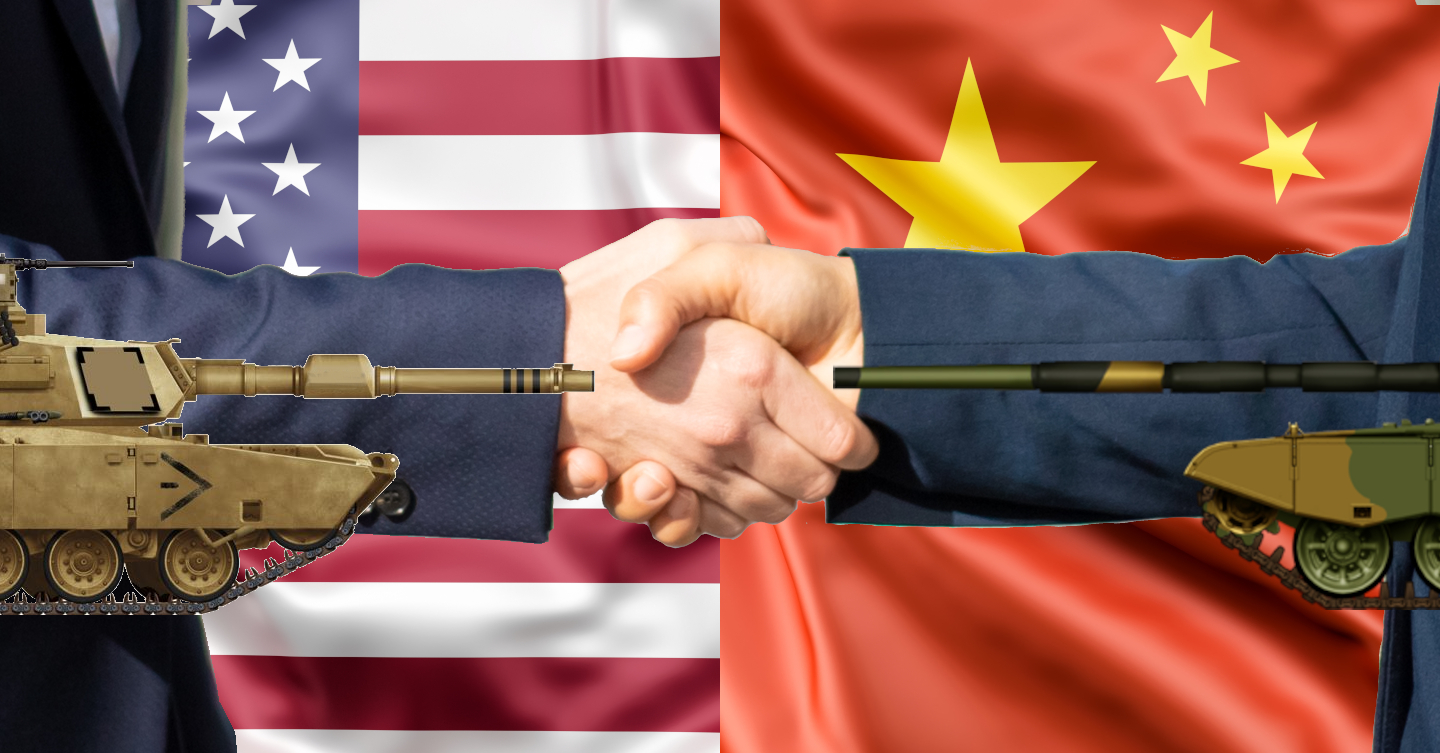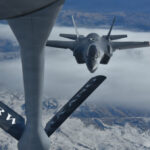
DoD must: expand competition without exacerbating it, internalize the salient lessons from adversary approaches without militarizing them, and integrate capabilities without duplicating them.
Introduction
According to Hollywood lore, directors fired A-list movie star Edward Norton from his role in the Marvel superhero films because he lacked the “collaborative spirit” working as a member of an ensemble cast. In other words, he failed to internalize the “support” requirements of an actor in a “supporting” role. In Hollywood, the price of such miscalculations is merely a bruised ego. In Great Power Competition, the price could be fatal.
As the United States operationalizes its shift from counterterrorism to nation-state competition, much discussion has occurred regarding how the Department of Defense (DoD) should address the challenges posed by nation-state competitors. Almost universally, the discussion of how DoD contributes to Great Power Competition involves increasing or adding capabilities to support a whole-of-government approach. That is, “expanding the competitive space” means expanding DoD capabilities to support all instruments of national power. However, even while correctly perceiving the expanded scope of conflict in the emerging operational environment, DoD should tread carefully in its zeal to expand the competitive space. Specifically, DoD needs to recognize and preserve the balance between three critical relationships as it aims to position itself for Great Power Competition. DoD must: expand competition without exacerbating it, internalize the salient lessons from adversary approaches without militarizing them, and integrate capabilities without duplicating them. Such is the essence of audacious stewardship–which seeks to align and position DoD as a supporting (not supported) effort in competition. Audacious stewardship will enhance DoD’s credibility, counterintuitively preserve capability, and truly enable the critical expertise located across the instruments of national power for nation-state competition.
Expanding vs. Exacerbating Competition
Well-intentioned DoD efforts to expand the competitive space against external actors may unintentionally exacerbate the internal competitive space between the elements of U.S. national power that comprise a whole-of-government strategy. In her best-selling book How Everything Became War and the Military Became Everything, author Rosa Brooks documents how, during the enduring counterinsurgency wars of the previous decades, DoD consistently competed with elements of national power to develop soft-power approaches to conflict that encroached on (and indeed usurped) some of the latent expertise within the non-DoD interagency.
To be sure, this reality is likely the product of good-faith efforts from DoD to analyze and develop capabilities aligned with (and responding to) the emerging threat environment at the time. Even so, whether intended or unintended, DoD’s expansion and infiltration into all elements of national power reflects an imbalance in its approach where DoD perhaps over-analyzed whether it could contribute capabilities to the emerging threat while under-analyzing whether it should contribute certain capabilities better situated in other elements of national power.
Guided by the above impulses, for example, instead of empowering and enlarging the diplomatic and political expertise resident in a highly trained diplomatic and foreign service corps, DoD articulated the need to create “warrior diplomats” to solve the political problems encountered on the emerging and expanded battlefield. The same impulses drive current recommendations for DoD to incorporate social science skills into strategy training as well previous DoD efforts to conduct large-scale nation-building as a military function of combat. In short, in the frantic race to provide exquisite capability in the emerging competition environment, DoD now performs “nearly every job on the planet”-regardless of whether or not such so-called expertise is more appropriately leveraged from other agencies within the whole-of-government.
Bluntly, the interagency does not need “warrior diplomats” so much as it needs more resources to support the diplomatic and other elements of national power in Great Power Competition- entities with roughly 5% of DoD’s budget. In this way, DoD ends up exacerbating competition rather than expanding it. DoD needs to weigh every initiative to create or augment “soft power” approaches through the “Expand vs. Exacerbate” lens to ensure that resources requested to create new expertise and capabilities do not undermine existing expertise and capability within the interagency. Former Secretary of Defense James Mattis highlighted the imperative of balancing resources across the whole-of-government spectrum when he noted that the more resources committed to diplomacy (as an additional element of national power), the “less we have to put in a military budget.” True recognition of both the expansion of modern conflict and DoD’s role as a supporting (not supported) effort reflects Mattis’ maxim and demands pushback, in the name of stewardship, every time DoD aims to expand competition at the expense of mobilizing the ideally suited (and often better positioned) elements of national power to address competition short of war.
Internalizing vs. Militarizing Competitive Approaches
Presumably, much of the impetus to expand the competition against adversaries in this age of Great Power Competition comes from concern analyzing successful adversary approaches to competition in the contemporary environment. Much has been made, for instance, of the Russian New Generation Warfare achieving competitive gains in Ukraine and Europe. Likewise, celebrated Chinese colonels Quiao Liang and Wang Xiangsui published Unrestricted Warfare as the manual for how China used whole-of-government irregular warfare to rise to superpower status over the last thirty years. Given these successes, there appears to be many valuable lessons to draw from adversary actions in the competitive space.
Well-intentioned DoD efforts to apply these adversary lessons militarize them without internalizing their greater significance for whole-of-government competition.
But DoD must draw the correct lessons from such approaches and internalize them without exclusively militarizing them. The idea of the military not exclusively “militarizing” adversary lessons in competition seems non-sensical until one remembers that the whole idea behind the changing character of war in the 21st century is that conflict will expand into new and decidedly non-military domains. Thus, to the extent that DoD seeks to define new concepts in strictly military terms, it inadvertently (and inefficiently) narrows the scope and arena for active and effective competition. As life-long China expert Michael Pillsbury describes in his authoritative account of China’s rise vis-a-vis the United States in The Hundred-Year Marathon, China’s Unrestricted Warfare strategy to competition deliberately minimized military efforts while giving primacy to whole-of-government initiatives from other elements of power that ultimately proved successful in building Chinese superpower capabilities. Well-intentioned DoD efforts to apply these adversary lessons militarize them without internalizing their greater significance for whole-of-government competition. As a recent and important example of this flawed approach, to expand capabilities in irregular warfare, the Department released the Irregular Warfare Annex to the National Defense Strategy–essentially mandating that the entire Joint Force add irregular warfare expertise (a traditional domain for smaller Special Operations Forces) to its core competencies. To be sure, irregular warfare is a critical and increasing component of modern conflict that deserves greater attention from military practitioners and strategists. Even so, DoD’s folly in its new approach to irregular warfare appears twofold: first, it asks the whole force to develop competencies for tasks which it is not designed to conduct. This creates intra-department competition to learn new skills while still maintaining readiness for all of the old ones. In metaphorical terms, one should not expect success asking a surgeon to take on the new (and unrelated to medicine) task of welding while still expecting the maintenance of the skills required for a heart transplant. Secondly the Irregular Warfare Annex appears to incorrectly locate irregular warfare solely within the military element of national power. In other words, it adopts the exact opposite approach that China successfully demonstrated with their Unrestricted Warfare strategy de-emphasizing the military element of competition while expanding competition to all other elements of power. The lesson for internalizing (not militarizing) seems clear: modern competition in conflict is not wholly- or perhaps even primarily- located in the military dimension of national power. Stewardship strategies for resource allocation should reflect this truth.
Integrating vs. Duplicating Competitive Capabilities
There is a subtle but critical difference between efficiently integrating military capabilities into existing elements of national power and inefficiently duplicating interagency efforts. This “Integration vs. Duplication” paradigm should serve as a litmus test for DoD efforts seeking to expand the competition with adversaries in an environment that increasingly sees competition as a non-military domain. Resisting impulses to duplicate capabilities that reside more appropriately in the interagency demonstrates a profound stewardship of resources that fully communicates DoD as a supporting (not supported) effort in competition short of war. Adapting a famous early American quote from Robert Harper , the mantra for this type of stewardship should read: “Billions for integration, but not a cent for duplication.” That is, DoD should spend as much as it needs for integrating its capabilities into whole-of-government approaches but not one cent on activities that duplicate them. Critically, this allows the interagency to grow and develop their existing expertise while leveraging the most successful lessons from adversary approaches to competition. Additionally, far from doing less, this stewardship approach preserves DoD capabilities by allowing it to focus along a more narrowly defined band of capabilities that is both commensurate with the military supporting role in competition and the requirements for readiness to deter and (if necessary) prosecute high intensity conflict. Like a professional researcher narrowing a research question to obtain focused and better-quality results, such an approach to stewardship will focus DoD capabilities in a way that wisely resists the urge to create DoD experts in all dimensions of competition.
Conclusion
As Great Power Competition continues to define the contours of the 21st century’s greatest security challenges for the United States, it is audacious to make recommendations that, on their surface, appear to ask DoD to contribute less to the challenge. Yet this is the very essence of good stewardship. If conflict in the 21st century has taken on a character that emphasizes indirect competitive approaches, then the most responsible DoD response is to advocate for the reallocation of resources to the elements of national power that feature most prominently in emerging national security challenges. In this way, DoD facilitates the expansion (not exacerbation) of competition that reflects a credibility-enhancing attitude embracing a supporting role to whole-of-government approaches. Likewise, it demonstrates a mature perspective to competition that internalizes (without militarizing) the best competitive approaches to optimize the interagency and a whole-of-government strategy. Finally, such an approach to stewardship requires constant assessment of where efforts to expand the competition duplicate (rather than integrate) capabilities. Taken together, these metrics serve as a powerful plumb line guiding and aligning DoD’s approach to competition. As a critical part of the national security ensemble cast of characters for competition, DoD must demonstrate the stewardship required for an effective “collaborative spirit” to emerge among the integrated elements of national power. America’s adversaries are counting on the United States getting its approach to competition wrong. Emerging from the Global War on Terror as a high-performing and trusted national security tool, the American people are expecting DoD to lead efforts to get it right.
Scott J. Harr is an Army Special Forces Officer and Ph.D. Candidate at the Helms School of Government, Liberty University. He holds an undergraduate degree in Arabic Language Studies from West Point and a master’s degree in Middle Eastern Affairs from Liberty University. A trained Arabic and Farsi speaker with over four years of cumulative deployment time in the Middle East, his work has been featured in The Diplomat, RealClearDefense, The Strategy Bridge, Modern War Institute, Military Review, The National Interest, and Joint Force Quarterly among other national security focused venues.
The views expressed in this article are those of the author and do not necessarily reflect those of the U.S. Army War College, the U.S. Army, or the Department of Defense.
Photo Credit: Business photo created by pch.vector – www.freepik.com, Flag photos created by www.slon.pics – www.freepik.com, Tanks courtesy of Tanks Encyclopedia





Three levels of threat present themselves, simultaneously I suggest, when a nation (for example the Soviet Union and/or the U.S.) is in “global change”/”world revolution” mode; these such three levels of threat — which occur simultaneously — being:
a. The threat coming from the more-conservative/the more-traditional/the more-no-change (and/or reverse already realized but unwanted change) governments and population groups within one’s own home countries.
b. The threat coming from the more-conservative/the more-traditional/the more-no-change (and/or reverse already realized but unwanted change) of governments and population groups within the other, lesser states and societies of the world. And:
c. The threat coming from the more-conservative/the more-traditional/the more-no-change (and/or reverse already realized but unwanted change) governments and population groups within the other great powers.
(Note how these three levels of more-conservative, etc., “threat” groups can easily become the natural allies of one another.)
Based on this such understanding of the “threat” — which presents itself when a particular nation (for example the USSR and/or the U.S.) moves out smartly in “global change”/”world revolution” mode yesterday or today — then:
a. Does it really make much sense to define — and/or to work toward “winning” — such a “universal” anti-revolutionary/anti-change conflict as I describe (see my “a” – “c” above) — this,
b. By defining this conflict in “great power” (only) competition/conflict term?
(Herein, something like “world-wide resistance to change” would seem to be a better term; this, given the true nature and scope of the conflict/competition that I have outlined above.)
Thus, best to address this question first, before moving on to consider such things as whether and/or how to “DO LESS, BETTER: THE AUDACITY OF STEWARDSHIP IN GREAT POWER COMPETITION?”
B.C.,
appreciate the perspective and comment. If you are arguing that the true “threats” to the U.S. are broader, “universal,” and ideologically-aligned at various levels, then I would say such a threat only supports my argument that DoD should assume a lesser role addressing these threats and that the remedies probably exist outside of DoD. Especially if, as you mention, a significant portion of the threat exists internally within the U.S. (DoD will naturally- and statutorily- have a limited role in this area).
To me, it makes perfect sense for DoD to define the conflict/competition in terms of “great powers” because DoD is largely focused on protecting the nation from external challenges to American sovereignty and security. In an international community that features grossly unequal nation states (in terms of capabilities), DoD should naturally address those states (i.e. “Great Powers”) with the most robust capabilities to existentially threaten America- even if a unified theme and ideological connections to the broader “threat” exist within lesser (capable) states as you mention/describe (particularly in “B”).
Bottom Line: it is smart to address the question you pose…but answering it in the way you have described only leads you to the points I make in “Do Less, better” (in my opinion)
Scott: Thank you for considering my thoughts above.
Given that we perceive that our national security, today and going forward, depends largely on our being able to alter, in small ways and/or large, the ways of life, the ways of governance, and/or the values of not only our own states and societies but those of the rest of the world also — this, so that same might be made to better interact with, better provide for and better benefit from such things as capitalism, globalization and the global economy — then it becomes obvious that, when push comes to shove, neither the U.S./the West, nor the other states and societies of the world, will be able to let such things as Posse Comitatus get in the way of survival. In this regard, we might consider that “Congress created the Posse Comitatus Act and can repeal or adjust the law if the circumstances require.” (From the abstract to the 2003 paper: “The Posse Comitatus Act of 1878: An Historical Perspective and Implications for Homeland Defense,” by James R. Weber.)
Indeed, as the Catholic University of America, Columbus School of Law paper “Moral Communities or a Market State: The Supreme Court’s Vision of the Police Power in the Age of Globalization” (therein, see Page 643) by Antonio F. Perez and Robert J. Delahunty indicates, the U.S. Supreme Court appears to have (a) already moved out smartly in this general direction and, this, (b) for the national security reasons I note above:
“We agree with Bobbitt that a global transition from Nation States to Market States is now well underway. The chief thesis of this Article is that the Supreme Court has embarked on a program of reshaping constitutional doctrine so as to encourage and facilitate the emergence of a fully developed Market State in this polity, with a view to positioning the United States to be successful in meeting the competitive challenges of a new, post Cold War international order. In taking this course, the Court has increasingly aligned itself with the prescriptive views of American business and political elites, for whom globalization is understood ‘not merely [as] a diagnostic tool but also [as] an action program.’ From this perspective, globalization ‘represents a great virtue, the transcendence of the traditional restrictions on worldwide economic activity .., inherent in the era of Nation States.’ Proponents of this vision of a globalized economy characterize the United States as ‘a giant corporation locked in a fierce competitive struggle with other nations for economic survival,’ so that ‘the central task of the federal government’ is ‘to increase the international competitiveness of the American economy.’ ”
Bottom Line Thought — Based on the Above:
The DoD role thus — today and going forward — and both here at home and there abroad — now having to be adapted; this, so as to fulfil the national security mission outlined above?
Addendum: At first glance, one might consider that (a) “to increase the international competitiveness of the American economy,” this (b) would not fall into DoD’s “lane.”
If we understand, however, that (a) the political, economic, social and/or value changes that are required to increase the international competitiveness of the American (or any other) economy, these (b) routinely and consistently “produce many losers … and pose a serious threat to traditional social values, beliefs, and institutions,”
THEN, I suggest, you can see the DoD role; which is, to stand against those conservative groups (both at home and abroad) who will fight and die; this, rather than (a) become “losers” and (b) see their traditional social values, beliefs, and institutions undermined and/or substantially changed.
(As to my quoted items above, see the book “The Challenge of the Global Capitalism: The World Economy in the 21st Century,” by Robert Gilpin, see the Introduction.)
Is this helpful?